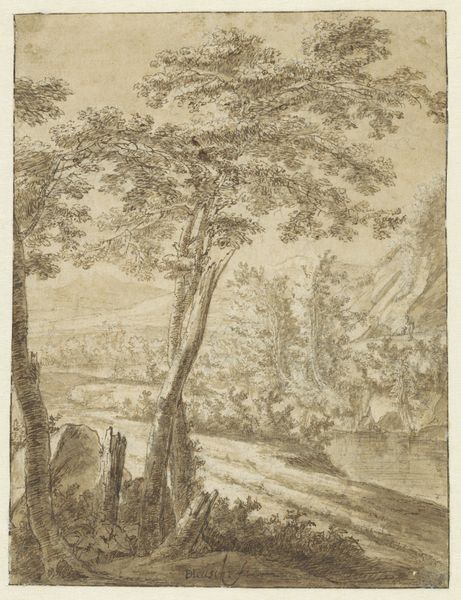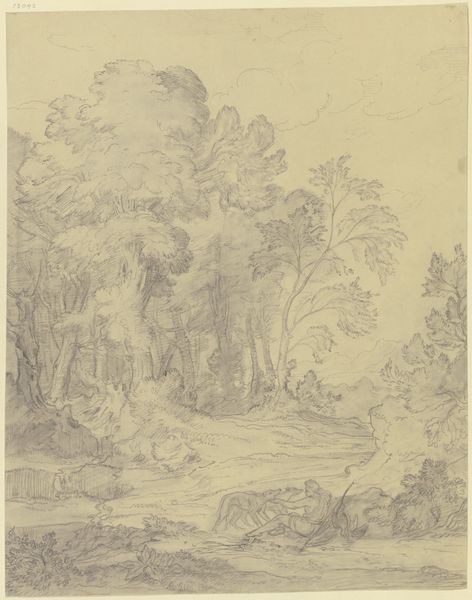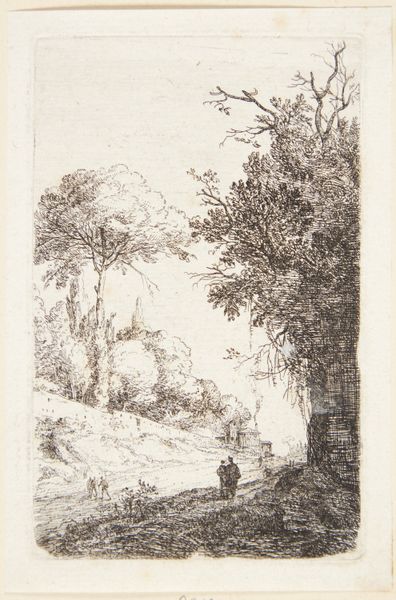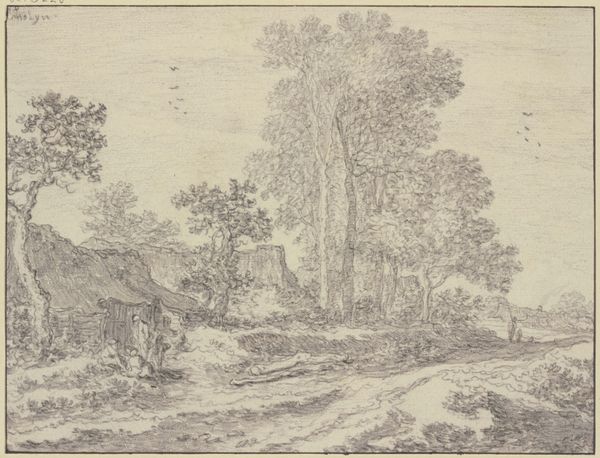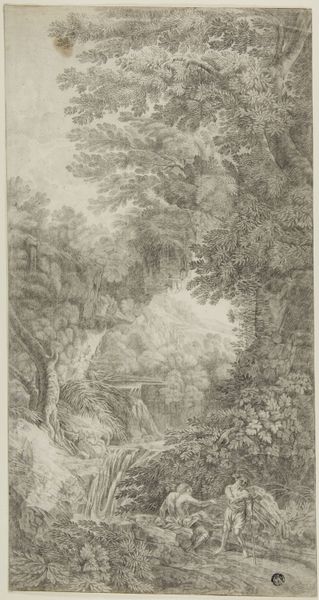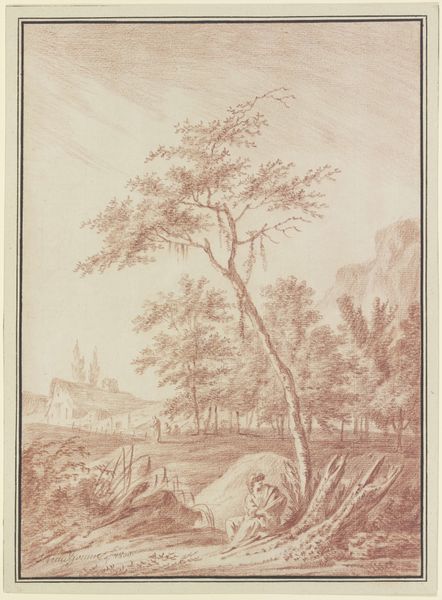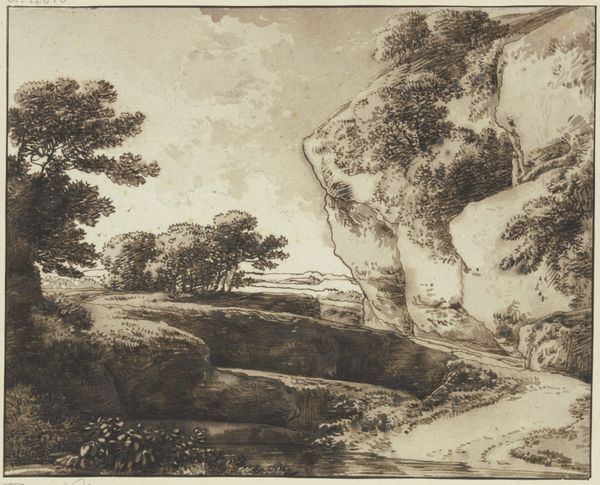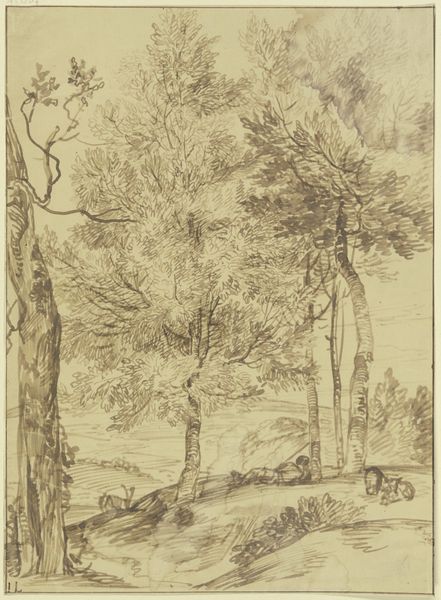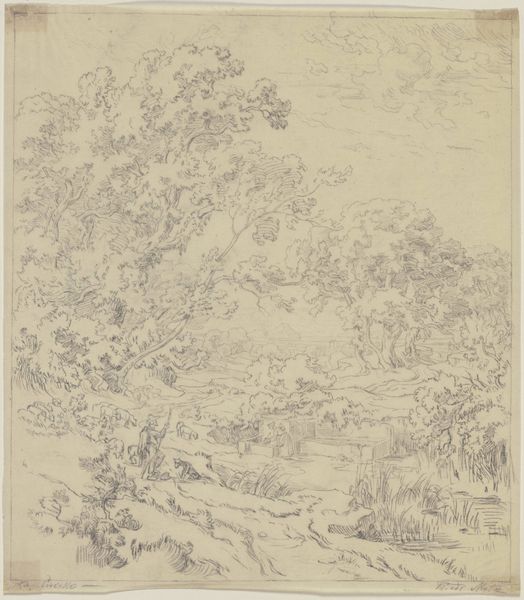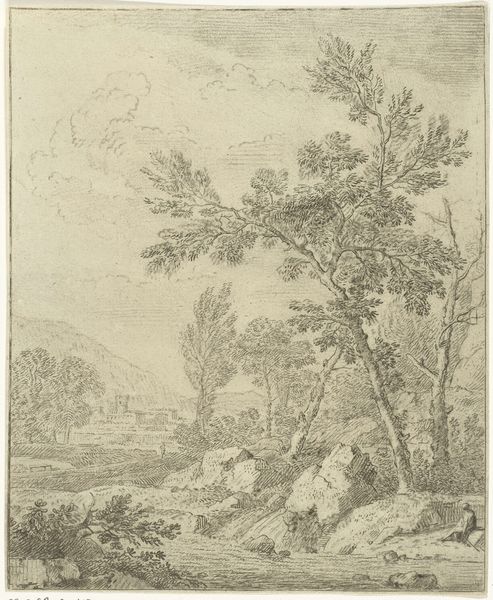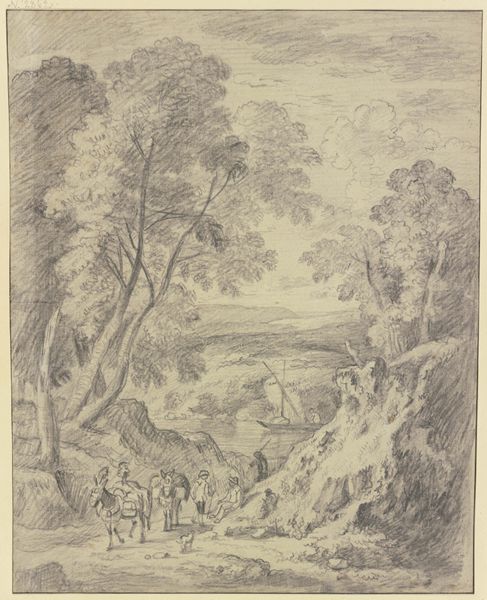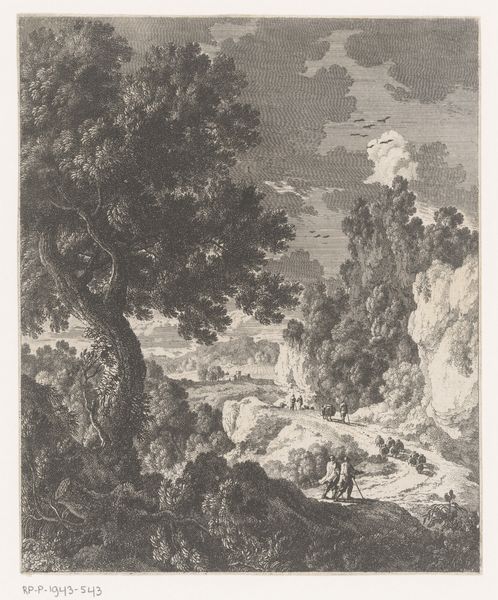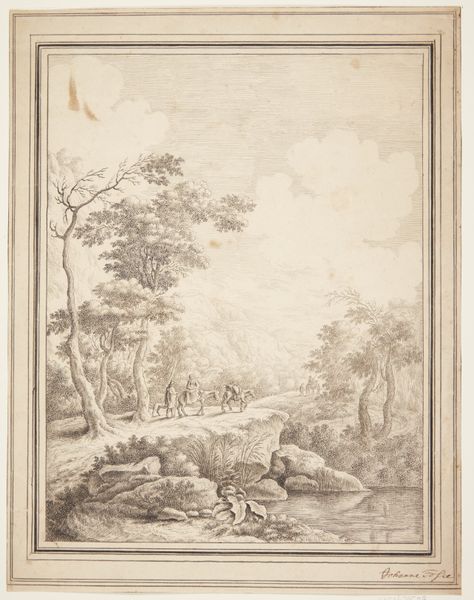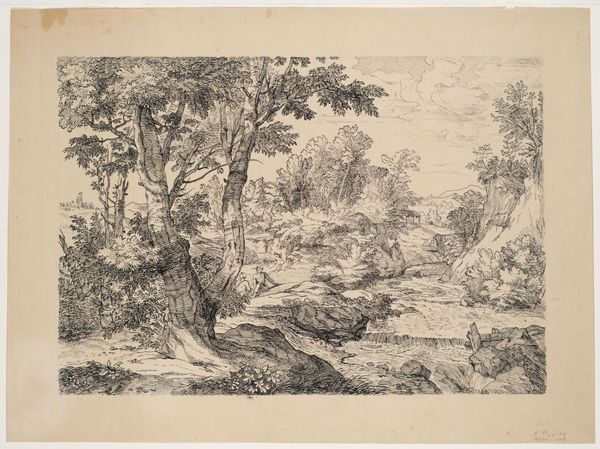
Baumbestandenes Tal, im Vordergrund ein Bach, über den eine Brücke führt
0:00
0:00
drawing, paper
#
drawing
#
landscape
#
paper
#
personal sketchbook
#
romanticism
Copyright: Public Domain
Johann Ludwig Ernst Morgenstern created this landscape drawing of a wooded valley with a bridge using pen and brown ink sometime in the late 18th or early 19th century. The scene evokes the Romantic movement’s fascination with nature, but it also reflects specific social and economic realities of the time in Germany. Consider the bridge itself: infrastructure projects like this were crucial for trade and travel, linking rural areas to larger markets. The lone figure on the bridge may be read as a surveyor, an engineer, or other official overseeing construction. Morgenstern’s choice of subject matter aligns with the broader cultural trends valuing landscape as a source of national identity and pride. To understand this artwork, you might look at land-use policies or infrastructural investments during this period. In doing so, we recognize that the artwork is not merely a depiction of nature, but a reflection of how humans interact with and shape the environment.
Comments
No comments
Be the first to comment and join the conversation on the ultimate creative platform.
